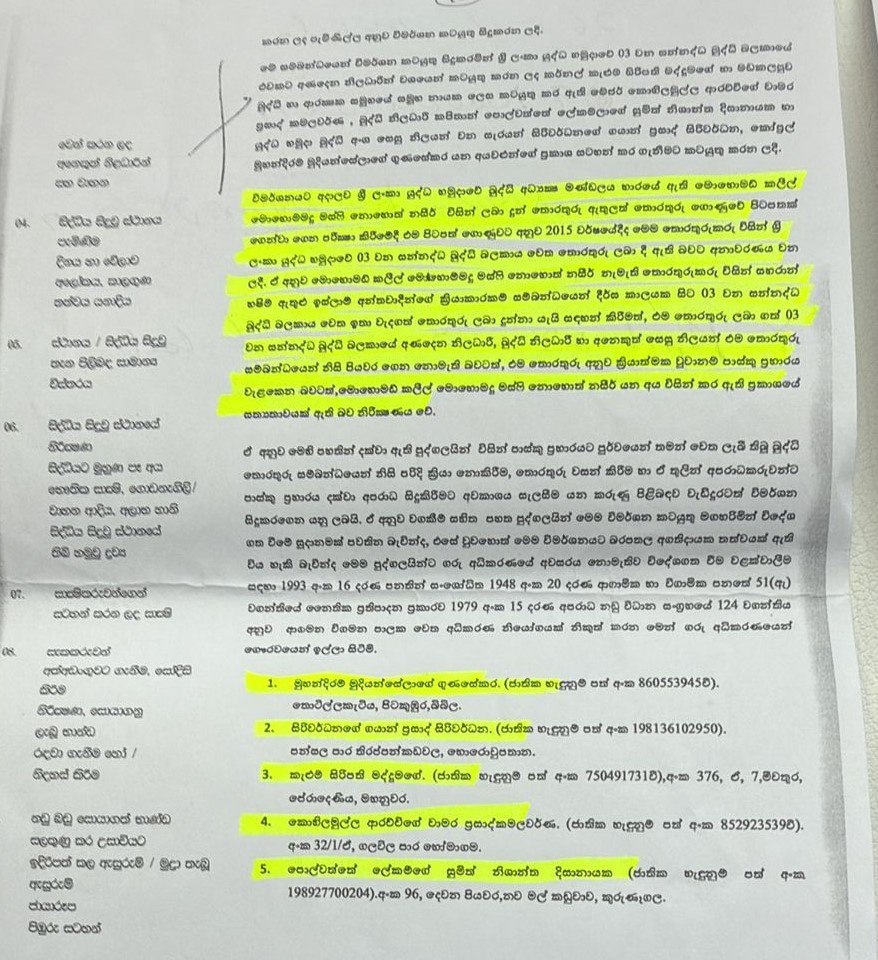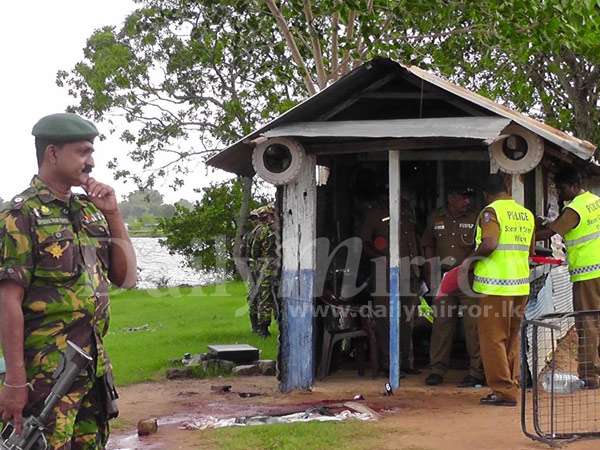Sri Lanka Brief – July 29, 2025. Fresh revelations have cast doubt on the conduct of senior Army intelligence officers regarding the November 2018 killing of two police officers in Vavunathivu, Batticaloa. A report submitted to the Colombo Fort Magistrate’s Court suggests that military intelligence officials had received credible information linking the attack to the extremist group led by Saharan Hashim — yet failed to act.
The report claims that the Batticaloa Intelligence and Security Group, part of the Sri Lanka Army’s Third Armed Intelligence Corps, was informed by an undercover informant, Mohamed Khalil Mohamed Masfi alias Nasir, just three days after the attack. At the time, Brigadier Suresh Salley was active within the Directorate of Military Intelligence (DMI), with oversight over regional units.
Investigators assert that intelligence about Saharan Hashim had been flowing to the Batticaloa unit since 2015, and should have reached Salley directly. Despite this, no preventive or follow-up action was taken, and reports dating back to 2014 are now said to be missing from the intelligence file.
Following Salley’s tenure, Brigadier Chula Kodithuwakku took over as DMI chief. The CID alleges that under his leadership, further intelligence confirming Hashim’s role in the Vavunathivu killings — received within two weeks of the incident — was suppressed.
The Army Intelligence Division had allegedly diverted suspicion toward the LTTE, staging a scene with planted items to mislead the investigation. A former LTTE member was even arrested on false suspicion.
Statements have been recorded from key personnel, including:
- Colonel Kelum Siripathi Maddumage, then Commanding Officer,
- Captain Sumith Nishantha Dissanayake, Intelligence Officer,
- Sergeant Gayan Prasad Siriwardene, and others from the Batticaloa unit.
While they claimed Nasir was recruited only in 2019, the CID contends he had already reported Hashim’s movements in mid-April 2019, and even earlier, with documented intelligence soon after the November 2018 attack.
The report concludes that timely and accurate response from the military intelligence units — dating back to 2014 — could have averted the 2019 Easter Sunday bombings, which killed over 250 people.

(With the inputs from an article written by Samanthi Weerasekara to the Divaina newspaper)
